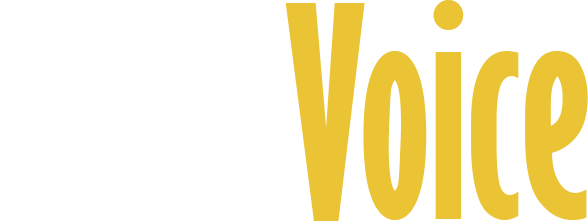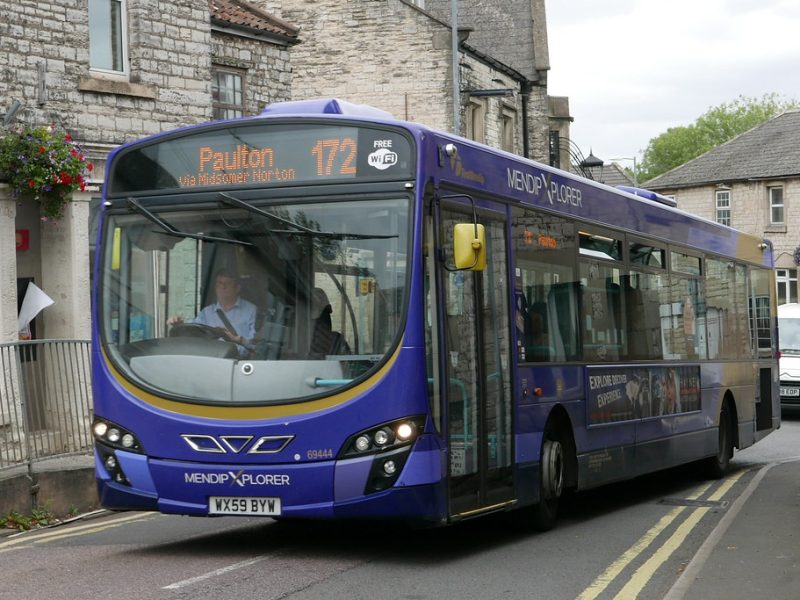By John Wimperis, Local Democracy Reporter: The bus network in Bath and North East Somerset will look radically different next week, with 15 well-known bus routes ending overnight and a new on demand minibus service launching.
Here is everything you need to know about what is changing from April 2, if you rely on the buses to get around.
Which buses are being cut?
A total of 15 bus routes in the council area are running for the last time this week, although some will have their routes taken over by new or upgraded services.
Although some of the buses that are being axed go through parts of Bath, it is rural North East Somerset which is bearing the brunt of the bus cuts.
The bus services that will no longer run from April 2 are:
- 178/178a Midsomer Norton – Brislington Park & Ride
- 185 Paulton – Trowbridge
- 636 Whitchurch – Keynsham
- 640 Bishop Sutton – Keynsham
- 663 Somerdale – Chandag Road
- 664 Somerdale – Saltford
- 665 Somerdale – Longmeadow Road
- 668 Peasedown St John – Bristol
- 683 Keynsham – Wells
- 684 Wick to Keynsham
- 752 Hinton Blewett – Bath
- 754 Hinton Blewett – Radstock
- 757 Combe Hay – Midsomer Norton
- 79 Tormarton – Bath
- 379 Bath – Bristol
Additionally, the 349’s journeys from Keynsham to Midsomer Norton will end. The bus will still go between Keynsham and Bristol Bus Station.
More information about changes to bus services can be found here on the Travelwest website: https://travelwest.info/bus/bus-service-changes/
Which buses will be running next week?
Current bus routes not listed above should continue to run, although there have been some timetable and route changes made to some buses and in the North East Somerset countryside, some key buses are only funded for a few more months.
The 82 between Paulton and Radstock, and the 179 and 768 which both run between Midsomer Norton and Bath will continue to run but only until June.
The 172 is also being funded until June and will have an extended route, running all the way to Bristol Bus Station after Paulton in order to replace the 379. The bus will now serve Bath, Peasedown St. John, Radstock, Midsomer Norton, Paulton, Clutton, Pensford, Whitchurch, and Bristol Bus Station. But the service will no longer call at Midsomer Norton Tesco.
The Chew Valley’s 672 between Blagon and Bristol was also going to end in June — until a surprise announcement that it had been extended until the end of July.
The 22 between Twerton and the University of Bath had been among those slated to be axed, but it is now planned to be extended with funding from the university.
A new bus will also start running called the 522.
Where will the 522 run?
The 522 will connect Bath and Bristol via Midsomer Norton. The bus will run every half hour between the two cities, with an hourly service on Sundays and public holidays.
It will serve Bath Bus Station, Peasedown St. John, Radstock, Midsomer Norton, Paulton, Hallatrow, High Littleton, Farnborough, Timsbury, Marksbury, Burnet, Keynsham, Brislington, and Bristol Bus Station.
The bus will essentially replace the axed 178 service. Alan Peters who runs local bus company Abus which currently runs that bus said: “It’s a huge enhancement on the 178, and by extending it to the bus stations at either end, they have enhanced it even more.”
But he added: “However it won’t help the people in Timsbury.”
The village is losing its 179 service directly into Bath — a predicament which left many villages fearing they were being “cut off”. The new 522 will go through the village and connect it to Bath, but the journey will take longer as it will go via Midsomer Norton.
Mr Peters added: “There’s the possibility of using DRT but we have yet to see what the DRT will look like. […] Most industry professionals do not feel that DRT will work in the way it’s envisioned.”
What is DRT?
“DRT” — or demand responsive transport — is a type of bus service that works on demand, with minibuses going where people need them rather than following set routes. It has been used in several areas around the country and, from next week, a DRT service will be rolling out across the West of England.
You will be able to book one of the 30 WESTlink minibuses through the WESTlink app which can be downloaded onto your smartphone, on the website, or over the phone on 0117 457 8561. A WESTlink minibus will pick you up from a nearby bus stop or “virtual bus stop.”
You can choose where you want to go within a zone covering most of rural North East Somerset and neighbouring North Somerset, but the scheme is intended to connect people in isolated areas up to mainline bus routes, on which buses will become more frequent from next week.
Old persons’ bus passes and concessionary travel passes will be accepted on the service, which will take cash as well as having the option to pay on the app. Fares will be £2 for an adult and £1 for a child.
But the West of England Combined Authority who are behind the scheme have said that the scheme will not be fully up and running from Monday, and it will build towards having 30 buses dependent on having the drivers and the technology behind the scheme working as intended.
You can find more information on the WESTlink website here: https://travelwest.info/westlink/
Which routes will get more frequent buses?
There will be a bus every 15 minutes along five key travel corridors, as the result of a partnership between the West of England Combined Authority and First Bus.
Four buses — the 1 from Bath City Centre to Southdown, the 5 from Bath City Centre to Whiteway, the X39 from Bath to Bristol, and the newly extended 172 service — will have extra buses covering their routes to increase their frequency.
When combined, in some instances, with other buses going down the same roads, this is intended to ensure the following travel corridors are served by a bus at least every 15 minutes:
- Bath to Southdown (Served by the 1)
- Bath to Whiteway (Served by the 5)
- Keynsham to Bristol (Served by the X39, 349 and 522)
- Midsomer Norton to Bath (Served by the 172, 173, 174 and 522)
- Bath to Bristol (Served by the 39 and x39)
Why is all of this happening?
Unlike in some areas where buses are run as a central franchise, such as London, in the West of England — which is the transport authority covering Bath and North East Somerset — bus companies run the services they want to.
Where it is not commercially viable for bus companies to run bus services, such as through large parts of rural North East Somerset, the routes are funded by the local council, with Bath and North East Somerset Council paying a transport levy to the West of England Combined Authority to pay to keep these services running.
In November, the West of England Combined Authority was successful in getting £57.7m in bus service improvement plan funding from the government. This funding, which is intended to find new and innovative ways to improve public transport, is what is paying for WESTlink and the upgraded frequency on some bus routes.
But with high levels of inflation driving up the cost of supporting bus services, Bath and North East Somerset Council— along with the other councils that make up the West of England Combined Authority — decided not to increase their transport levies, meaning supported services would have to be cut.
The council has argued that West of England Metro Mayor Norris should use the bus service improvement plan funding to pay for the supported bus services, but Mr Norris said he had been told by the government the money could not be used for his.
Bath and North East Somerset Council committed £281,000 in its budget to continue funding all supported bus services within Bath, which will not be served by WESTlink, for another year and to continue fund the 82, 179, 768, 172, and 672 for a few more months.
Council leader Kevin Guy said in a letter to Mr Norris: “We in [Bath and North East Somerset] have committed to spending additional funds from our budgets to ensure as comprehensive a network as possible, as well as the continuation of five services within [North East] Somerset to support our communities as they transition across to the new demand responsive transport system.”
But Mr Norris has said that councils should keep funding supported services and stressed that the system is “not a replacement for supported buses.”
Mr Guy asked Mr Norris to put on five new bus services as a “vital spinal bus link” to support WESTlink. Of these, only the 522 was commissioned.
The changes to the bus routes come into effect from April 2. WESTlink will begin rolling out from April.
Bath Voice Monthly Newspaper is distributed free to thousands of homes and some supermarkets – distributed from the first of the month. Harry Mottram is the News Editor
Email him at news@bathvoice.co.uk
Bath website: https://bathvoice.co.uk/news/
Bath Facebook: https://tinyurl.com/bdtf2kep
Also on Twitter: https://twitter.com/bath_voice
Read the newspaper online at :https://issuu.com/bathvoice
To advertise to thousands of Bathonians call Erica on 07402 441485 or email her on erica@bathvoice.co.uk
Harry Mottram is a freelance journalist. Follow him on Facebook, LinkedIn, Twitter, Instagram, YouTube etc
Email:harryfmottram@gmail.com
Website:www.harrymottram.co.uk
Mobile: 07789 864769


